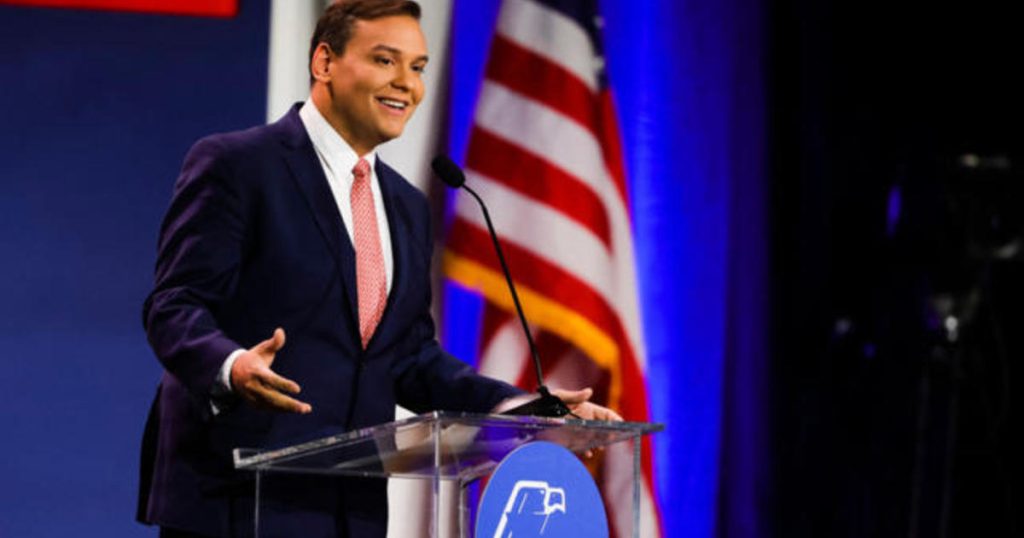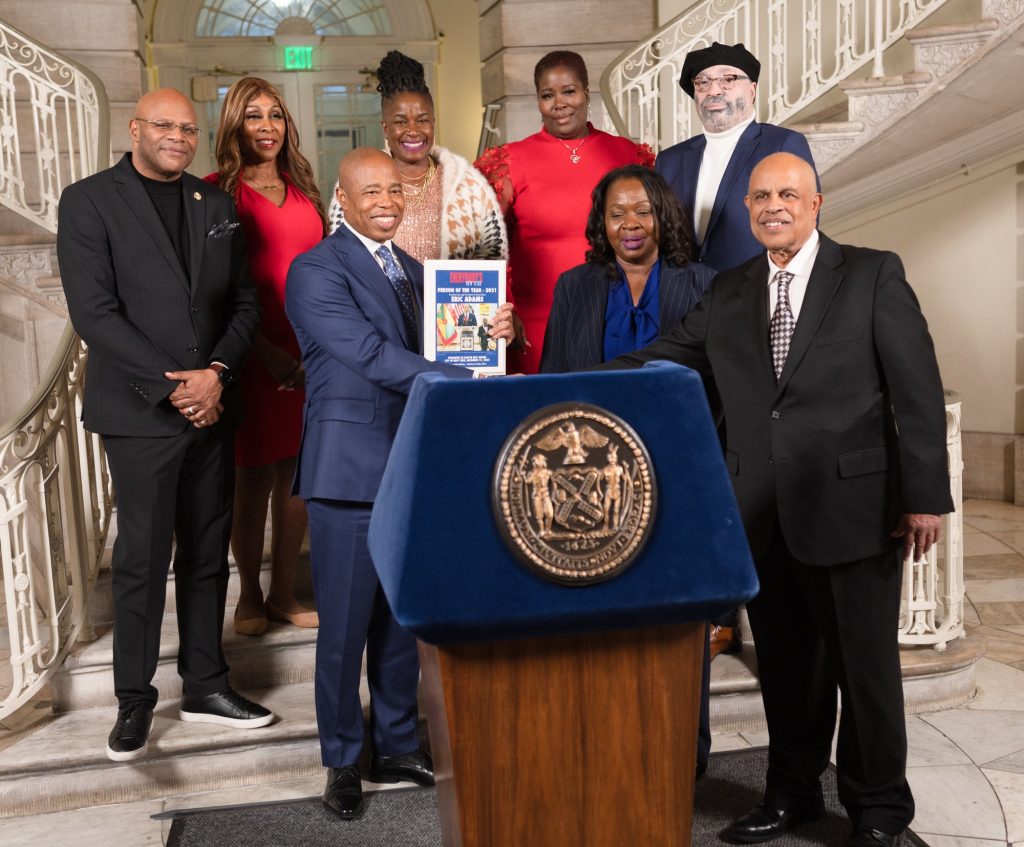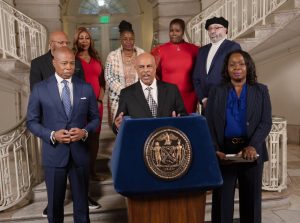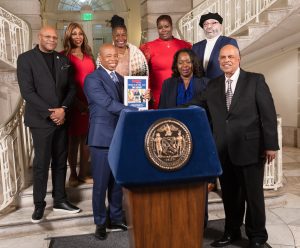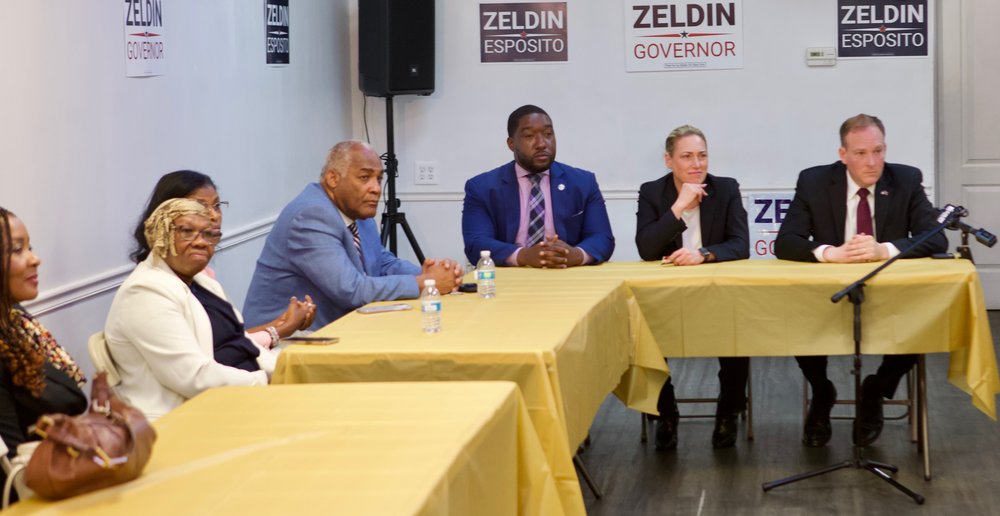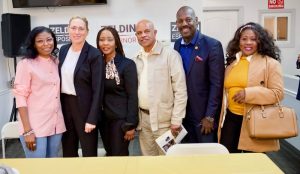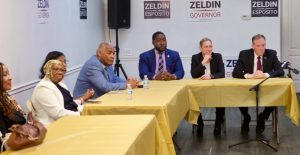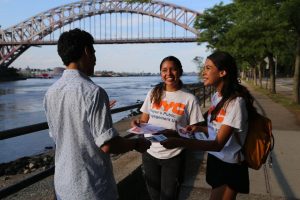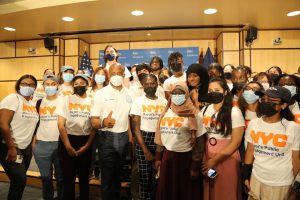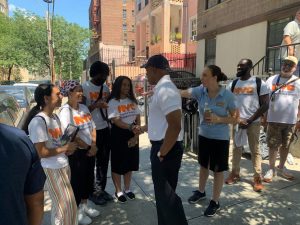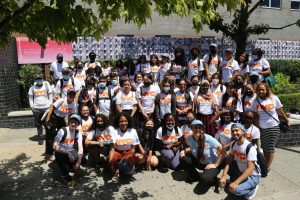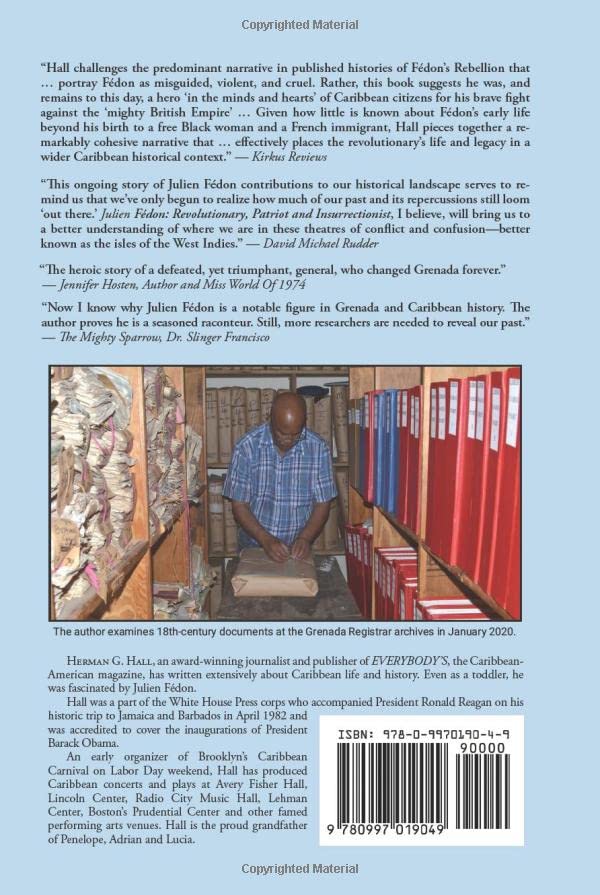City Hall, NY – In its last Stated Meeting of the year and the term, the Council today will cap off its legacy of working towards bold climate and environmental justice by voting on three relevant bills and a resolution. First, to help New York City reach carbon neutrality by 2050 or sooner, the Council will vote on groundbreaking legislation to significantly reduce building emissions and instead promote energy efficiency and electrification. The bill would prohibit the combustion of substances with certain emissions profiles in new buildings within New York City and direct the Commissioner of Buildings to deny construction documents and permits for new buildings that would require these fuels, with some exceptions where electrification might not yet be a feasible substitute.
To avoid unnecessary energy usage from leaving lights on in offices or other spaces at night, the Council will vote on a bill that would require the installation of occupancy sensors to limit illumination in buildings owned by New York City. This requirement would apply to spaces in at least 25% of City-owned buildings by 2023, at least 40% of such buildings by 2025, at least 75% of such buildings by 2027, and all such buildings by 2030.
Similar legislation pertaining to lighting would also help prevent the unnecessary death of migratory birds in New York City. The Council will vote on a bill that would require all non-essential outdoor lighting in buildings owned by the City, or in leased buildings where the City is the only tenant, to be turned off between 11:00 p.m. and 6:00 a.m. during peak migration periods for birds. The legislation would also require the City to use its best efforts to include provisions in lease negotiations to require these same requirements for buildings where the City shares the building with other tenants.
The Council will also vote on a resolution calling on the U.S. Congress to pass and the President to sign the Green New Deal for Public Housing Act, which would commit up to $180 billion over a decade to rehabilitate, upgrade, and transition 1.2 million public housing units across the nation in a way that addresses energy efficiency and workforce development.
Pertaining to New Yorkers’ health, the Council will vote on legislation in relation to requiring added sugar notifications in chain restaurants. Specifically, the bill would require the Department of Health and Mental Hygiene to issue a rule designating an icon to be clearly displayed next to listed prepackaged food items on menus or menu boards, and on prepackaged food items on display that exceed a specified level of added sugars, including, but not limited to, 100 percent or more of the daily value for added sugars. It would also provide a factual warning statement about high added sugars intake. A year after the issuance of the rule, chain restaurants in New York City will be required to follow such rule or face financial penalties of $200-$500. This bill would also require DOHMH to conduct public outreach to educate restaurants about these requirements.
Additionally, the Council will vote on a bill that would require DOHMH to track and issue a report on New Yorkers’ mental health during the COVID-19 public health emergency. With about one third of all adult New Yorkers reporting symptoms of anxiety and/or depression at a rate more than triple self-reported pre-pandemic rates, the City needs more comprehensive data to better provide mental health services in response. The report would be published every six months and would include: the number of 311 and 911 calls relating to mental health, related emergencies, and substance misuse or overdoses; the number of calls received by any mental health hotline maintained by the department or by another agency; the number of hospital admissions for overdoses or that were substance use-related; and any other relevant information the Commissioner of Health deems appropriate. The data required would be disaggregated by age, race, gender, zip code, and any other demographic category that the department deems relevant, to the extent such demographic information is available. Additionally, on an annual basis, the report would include a description of any trends in adverse mental health of New Yorkers during the COVID-19 public health emergency and any steps taken by DOHMH to address them.
The Council will also vote on a health-related resolution, calling on the New York State Department of Health to create stand-alone, self-contained isolation centers or units for the treatment of patients with infectious disease due to epidemic, including highly contagious and airborne diseases.
To improve workforce equity and hiring transparency, the Council will vote on legislation that would make it an unlawful discriminatory practice to not include in job listings the minimum and maximum salary offered for any position located within New York City.
Two bills will also address specific gender-based harassment and violence experiences. First, one piece of legislation would require the establishment of a street harassment prevention advisory board to advise the Mayor and the Council on the prevalence of the issue, and recommend prevention measures. The board would study the occurrence of street harassment, identify those most at risk, and develop and recommend programming and educational materials for city agencies, public awareness and prevention, support and resources for victims, and information on non-criminalization responses.
Another bill would require the Police Department to train officers on responding to incidents involving domestic violence, sexual crimes, and human trafficking. The training would be delivered to all new recruits and every two years thereafter to all members of service who regularly interact with crime victims. The training would be developed from recommendations made by an interdisciplinary, interagency committee consisting of representatives of the NYPD, the Mayor’s Office to End Domestic and Gender-based Violence, and the Mayor’s Office of Criminal Justice, as well as domestic violence, sexual assault, and human trafficking service providers.
A related resolution before the Council would call on the Department of Education to provide training for school administrators, teachers, and building staff on human trafficking prevention strategies.
The Council will also be voting on legislation to ensure that the annual Voter Guide published by the City’s Campaign Finance Board reaches as many New Yorkers as possible. Specifically, the bill would require the Voter Guide to be published in six additional languages—meaning it would be available each of the top eleven languages spoken throughout the City. In addition, the bill would require the online version of the Voter Guide to include a video statement from each candidate and with each video including captioning in eleven languages and translation in American Sign Language. Finally, the bill would require the Voter Guide to be made available in a format that is accessible to New Yorkers with print and vision disabilities.
The Council will also vote on a bill to expand accessibility for people with hearing disabilities in movie theaters. The bill would require that movie theaters provide open captions for at least one quarter of all showings of each movie they show. At least half of the open captioned showings would be during peak attendance hours.
A September 2019 New York Times article exposed that the Department of Buildings’ enforcement of Construction Codes often resulted in penalties that disproportionately affected owners of one- to four-family homes. These smaller property owners were often unaware that certain conditions violated the Construction Codes, and after being issued an initial notice of violation, they found themselves in a cycle of re-inspection and issuance of new violations for the same condition, even while trying to pull a permit to correct the condition. DOB agrees that the sites that pose true safety concerns are, with some exceptions, construction sites, therefore it is not beneficial to continue this complicated enforcement cycle with small property owners. With that in mind, the Council will vote on a bill that would limit DOB penalties for failure to certify correction and re-inspection requirements to construction sites only, and specifically create an exception for one- to four-family homes from these two requirements. This bill would also allow that, for one- to two-family homes, DOB can issue a request to correct in lieu of a notice of violation, as long as that property had not received a DOB violation in the previous five years and the violating condition is not an illegal conversion or an immediately hazardous violation that led to death or serious injury. This bill would allow DOB to refocus its enforcement efforts from small properties to the construction sites that pose true safety risks.
The Council will also vote on legislation that would complete the most recent revision cycle to the New York City Fire Code, with amendments based on the 2015 edition of the International Fire Code, and additional provisions that reflect New York City’s unique environment. The Fire Code amendments include a comprehensive revision to energy storage system requirements, with the goal of establishing a regulatory framework that opens the door to lithium-ion and other new battery technologies to power buildings and building systems—all while assuring appropriate building fire safety. The bill would also establish a regulatory framework for New York City’s emerging distilled spirits industry, authorize the use of hydrogen fuel cells to further the City’s clean energy efforts, and include hundreds of other substantive and technical amendments to improve fire safety in the city.
To improve stove safety, the Council will vote on a bill that would amend the Housing Maintenance Code by requiring owners of units in multiple dwellings to provide to tenants with either permanent stove safety knobs with integrated locking mechanisms or stove knob covers for each knob located on the front of each gas-powered stove at the tenant’s option. This bill would also require unit owners to keep a record of tenant outreach regarding the installation of these permanent stove safety knobs or stove knob covers.
Additionally, the Council will vote on legislation to better enforce Mandatory Inclusionary Housing Program requirements citywide. MIH, a zoning tool developed by the Department of City Planning and the Department of Housing Preservation and Development, was implemented through a 2016 New York City Zoning Resolution amendment. It requires that when an area is rezoned to allow for more housing development, a certain proportion of affordable housing must also be included to create more economically diverse communities across New York City and ensure that a share of new housing in growing communities is affordable. Because enforcement mechanisms are necessary to ensure housing development compliance with MIH’s eligibility requirements, this bill would authorize HPD to enforce the affordable housing provisions placed within the department’s responsibility in accordance with the Zoning Resolution. The bill would establish the ways HPD is empowered to enforce the provisions and allows HPD to act through proceedings in the Office of Administrative Trials and Hearings, civil judicial proceedings, HPD investigations, appointing an authorized monitor, or other special remedies. This bill would also require HPD to create rules that specifically prohibit: occupancy of an affordable housing unit by anyone other than a qualifying household; unlawful configuration, distribution, sizing, or use of an affordable housing unit; charging unlawful monthly rent or fees for an affordable housing unit; filing a certification of correction of a violation or a statement that an unlawful use or condition has been corrected or did not exist that contains material misstatements of fact; failing to comply with an order issued by HPD under its Inclusionary Housing Program enforcement authority; charging of any unlawful sale prices or fees for an affordable housing unit; failing to comply with primary residence requirements; and unlawful restriction of access to the premises.
Anticipating the needs of a changing economic landscape and a soon expiring eviction moratorium in New York City, the Council will vote on a bill to make the Human Resources Administration’s emergency assistance grant program more accessible and transparent. These grants can be used to pay for rental arrears and utilities, assisting New Yorkers who are unable to meet an expense due to unforeseen situations or events such as homelessness, eviction or dispossession, utility disconnection or a pending shut off, disasters, domestic violence, or circumstances that affect people’s health and safety. This bill would require the Commissioner of the Department of Social Services to enhance the program process by posting information about the grants on the HRA website and enhancing applications by creating an informational sheet for prospective applicants in plain language. The informational sheet would include which forms and materials an applicant would need to submit and whether an applicant may be required to pay back any benefits, if received. It would also require the Commissioner to improve the administration of the grants in response to the increased need due to the COVID-19 pandemic and to conduct increased outreach on the program.
Related to evictions, the Council will also vote on a resolution calling on the New York State legislature to enact and the Governor to sign A.5573/S.3082, which would limit circumstances in which a landlord could recover possession of a rental unit, or fail to renew a lease to specific “good cause” grounds for removal including failure to pay a rent that has not been unreasonably increased, violation of a substantial obligation under the lease, use of the property for illegal activity, or unreasonably refusing access to make necessary repairs.
To continue looking out for the City’s homeowners, the Council will also vote on legislation that would extend the J-51 tax exemption and abatement program through June 30, 2022. The J-51 Tax Incentive program is an as-of-right property tax exemption and abatement program that provides benefits to owners of multi-family residential buildings who undertake certain conversions, alterations, or capital improvements on their properties. The tax exemption provides temporary relief from an increase in real estate taxes that would otherwise result from the increase in assessed value of the property due to such eligible work, while the tax abatement reduces or eliminates existing real estate taxes based on a percentage of the cost of the work that was performed. For this State authorization to continue, the City Council must extend the program via local law, for which the State has since enacted legislation authorizing the Council to do so.
Given the affordability crisis our City continues to face, the Council will vote on a bill to create a Task Force studying the feasibility of converting both vacant and commercially unviable office space to different uses, including but not limited to affordable housing development. Under this legislation, the Task Force would be required to consider factors like potential effects on health and welfare, and economic implications of such conversions.
The Council will also vote on two technology related bills. With automated decision systems and artificial intelligence being used more frequently to assist with evaluating financial, physical, and mental well-being, the Council will vote on legislation to keep tabs on algorithm usage in City agencies. The bill would require an annual report by agencies to the Mayor’s Office of Operations on automated decision systems they used at least once in the prior year, except when such a disclosure would endanger public safety. Such disclosure would include the commercial name and a brief description of the algorithmic tool, its purpose, and the type of data it collected and analyzed. The Mayor’s Office of Operations would be required to compile the information disclosed by agencies and submit a report to the Mayor and the Speaker of the Council every year.
The second technology bill would require the Commissioner of the Department of Information Technology & Telecommunications to designate an employee to serve as the Chief Geospatial Information Officer. The Officer would oversee a geospatial information system (GIS) that manages, analyzes, and maps several types of data in support of responding to emergency crises like floods, storms, and hurricanes.
To confront the ongoing crisis of gun violence in New York City, the Council will be voting on Legislation to establish a new Office for Neighborhood Safety and the Prevention of Gun Violence. Building on the work of the Mayor’s Office of Neighborhood Safety and the Mayor’s Office to Prevent Gun Violence, this new Office would address gun violence and public safety holistically, using an approach that considers socioeconomic and public health factors. Among other things, the Office would administer the City’s Crisis Management System, which uses a “cure violence” approach to stop neighborhood violence at its source. Launched in 2014, the CMS grew out of a proposal from the Council’s Task Force to Combat Gun Violence. By enshrining this and other related programs in the City’s Charter, this bill would ensure that such programs become a permanent fixture of the City’s government.
Relatedly, because of the benefits of peaceful conflict resolution, the Council will vote on a resolution that calls on the DOE as well as the New York State and federal governments to include instruction in peaceful conflict resolution as part of the required curriculum in all schools, starting in elementary schools.
